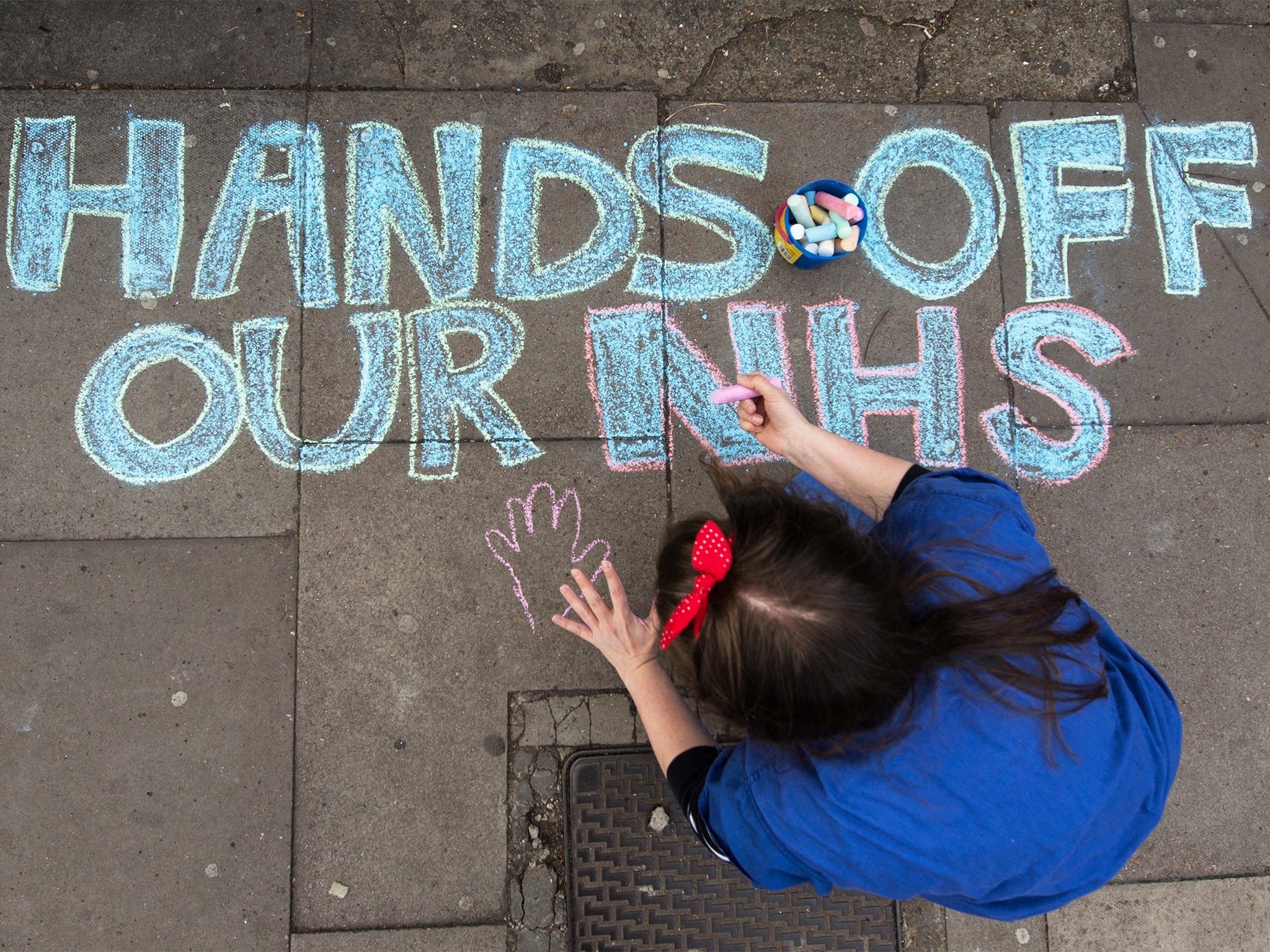Like our country, junior doctors are divided and without a plan for the future
We now face the imposition of a contract of employment that has been roundly rejected by those that will forced to serve under it, and the medical profession is in disarray

This week junior doctors in Britain voted to reject an employment contract that was their best offer yet. The announcement was no surprise to me.
As one of the junior doctors taking the fight against the contract to the public, I had been increasingly alarmed and dismayed at the nature of the discourse that has been waged by my profession since the publication of the proposed contract. In many ways, this bitter and protracted dispute captured many years of simmering discontent, anger and angst over junior doctor working conditions. Declining morale, many years in the making, finally came to the fore.
The vote has expressed the will of the majority of junior doctors, but it also reflected frustration at the underlying issues that plague medicine at all levels: dwindling resources, hierarchical structures, a workforce crisis and the poor handling of the NHS by the government. I am no apologist for the Government but I do believe that many of the issues that are exercising junior doctors are extra-contractual. This contract was never intended to solve every complaint and unhappiness, and I am not sure any single agreement would have achieved universal accord with the junior doctor body.
Like the vote for Brexit in the EU referendum just two weeks ago, this outcome has the whiff of an anti-establishment kicking of the government – it was the sole opportunity for junior doctors to have their voice heard in an environment where public servants like us have been silenced, ground down and ignored.
But it is, in the end, an unwelcome outcome. We now face the imposition of a contract of employment that has been roundly rejected by those that will forced to serve under it, and the medical profession has been left in disarray. Many commentators have expressed their disappointment at the outcome - as one of the 54000 junior doctors - I feel the same. A resolution was tantalising close but sadly has been rejected.
So what now? The situation for junior doctors now mimics the country post Brexit – there is no plan, and we are leaderless. The charismatic chair of the junior doctor committee, who stood firm against the government and achieved a negotiated settlement, has honourably resigned after the membership voted against it. A majority have stated they find the contract unacceptable in its current form, yet there is lack of clarity as to what needs to be achieved to satisfy demands.
This dispute has cut through the skin of junior doctors. Despite all attempts by the BMA and the government, the wound has widened not closed. In the current political environment, appetite for renegotiation seems slim. The split vote means that industrial action also seems unlikely, as junior doctors are divided in their view on whether it would be the correct course of action (unlike the previous 98 per cent mandate). Health Secretary Jeremy Hunt wants a “rapid” resolution – which can only mean imposition. So the negotiated settlement, though rejected, will be thrust on the majority of junior doctors.
I am not sure what this vote has achieved, other than creating further uncertainity for junior doctors. I despair at the current situation. For me, it was never a question of being on the winning side – it was always about obtaining a safe and fair junior contract. I think we had achieved that. With a yes vote, implementation of the contract would have proceeded with our trade union – the BMA – at the heart of it. Instead, we have a divided membership, a leaderless group of junior doctors, and a government who has achieved its original aim from July 2015: imposition of a contract that is unacceptable to those who will be working under it.
At least the mistaken notion that the BMA had misled junior doctors has been quashed. But with the membership rejecting this contract, the government now has no reason to engage with the trade union, they now perceive as weak. They are free to do as they wish.
Update 11.35am
Thankfully, unlike the current political party leadership contests, the BMA has acted quickly. Today, at the Junior Doctor Committee meeting, a new leader has been appointed. As with contenders for both labour and conservative, it's a female leader, she works less than full time and is an emergency medicine registrar. Whilst we do not yet know her leadership style she has strong credentials having been part of the last negotiating team.
So, we have a leader, but now we await a plan. And will this plan be in time to prevent imposition?

Join our commenting forum
Join thought-provoking conversations, follow other Independent readers and see their replies